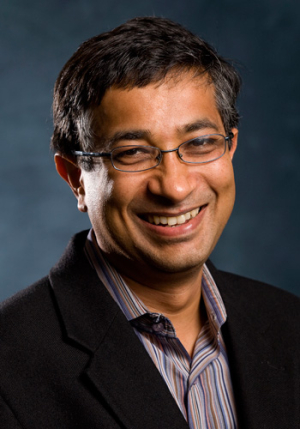Ramanan Krishnamoorti will be among a select group of 88 researchers convening in California this September for the National Academy of Engineering’s 15th Annual U.S. Frontiers of Engineering Symposium.
Krishnamoorti is the Dow Chair Professor and chair of the University of Houston Cullen College of Engineering’s Department of Chemical and Biomolecular Engineering. He was chosen from roughly 240 applicants, each nominated by organizations or fellow engineers, to attend the prestigious symposium.
“In today’s challenging economic times, we look more than ever toward our engineering innovators,” said Charles M. Vest, president of NAE, a non-profit institution that serves as an advisor to government and the public on issues in engineering and technology. “The U.S. Frontiers of Engineering program brings together a diverse group of this country’s most promising young engineers, and gives them a forum to discuss multi-disciplinary ways of addressing the issues that will carry us into tomorrow’s economy.”
The symposium, slated for Sept. 10-12 in Irvine, Calf., will be centered around technological advances and state-of-the-art research concepts. Participants from academia, industry and government will examine nano and micro photonics, engineering tools for scientific discovery, engineering the healthcare delivery system and resilient and sustainable infrastructures.
“This is a great opportunity that few are selected for that allows me to learn about cutting edge research issues from great researchers,” said Krishnamorti, noting the event could spark collaborative projects between he and some of the other bright, young researchers chosen to attend, which could help to find solutions to some of today’s problems.
Krishnamoorti joined the college in 1996 after earning his Ph.D. in chemical engineering from Princeton University and completing research fellowships at the California Institute of Technology and Cornell University. Throughout the course of his tenure, he has garnered more than $4 million in funding for research in areas that include nanotechnology, aerospace and biomaterials.
